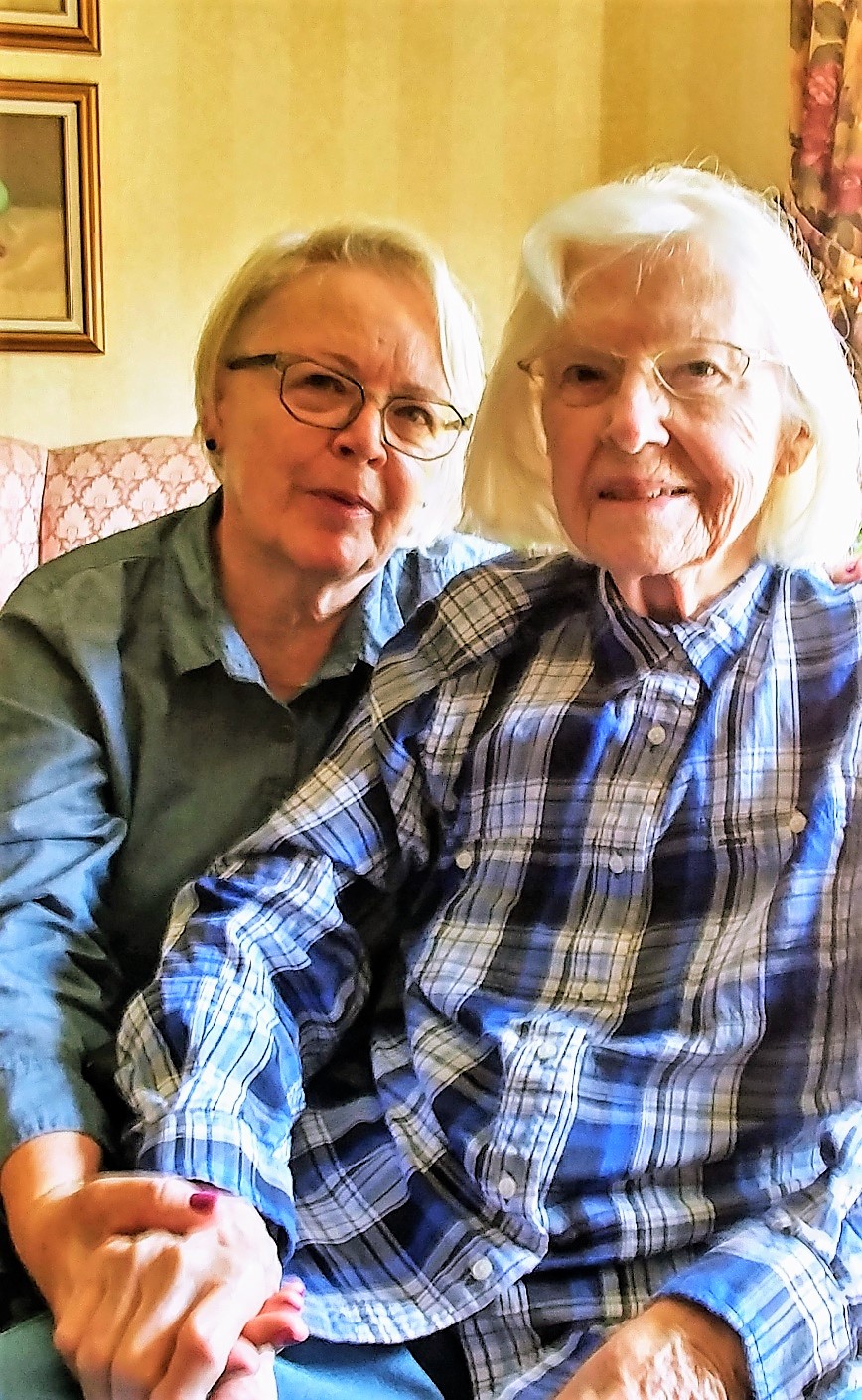peopleCare and partners research family caregiver presence in LTC
No matter where you live, it’s the presence of family that makes a home feel most like home. That’s why, in a year with so many barriers to time spent with loved ones, peopleCare has worked hard to support an uninterrupted presence for designated family caregivers in their long-term care (LTC) and retirement Homes. The most recent example is the organization’s participation in a new research project called “Presence of Family: (Re)Integrating Essential Care Partners in Ontario’s LTC Homes.”
Thanks to a research funding grant from Healthcare Excellence Canada, peopleCare will partner with the Ontario Centres for Learning, Research and Innovation (CLRI) in Long-Term Care to evaluate the Family Caregiver Program resources in place to support designated family caregivers at their Tavistock LTC Home. Bruyere and Grey County Homes are joint participants in the overall study.
Jenn Kairies, peopleCare Tavistock’s Director of Programs, says she’s excited to help lead collaborative research that will inspire positive change and promote the vital role that family members play as care partners in LTC.
“Families have always been an important part of our care team, and now more than ever we know the positive impact family interactions have on resident quality of life,” says Kairies. “There is nothing more heartwarming than seeing a resident connect with a loved one, whether in person or virtually. That’s just one of the reasons I’m happy peopleCare is participating in this important study and getting feedback directly from the people who will benefit most from any improvements.”

peopleCare Tavistock Director of Programs Jenn Kairies (left) and Joyce Pearson, President of the Residents’ Council (right)
peopleCare supports families with a range of visiting options, based on their preferences, the resident’s care needs and aligned with Ministry guidelines and directives. In an average week, peopleCare’s teams enable over 1,600 caregiver visits in its Homes, with training, personal protective equipment and ongoing education.
Through a combination of interviews, surveys and panel discussions, the “Presence of Family” research project will help peopleCare identify what’s working well and where enhancements could better support residents and families. In collaboration with an external research team, a developmental evaluation core team (DECT) that includes a resident, designated family caregivers and Tavistock LTC staff, like Jenn, will play an important role in the study. The DECT will inform the survey questions to garner insightful feedback from participants and analysis of the findings.
Joyce Pearson is the Residents’ Council President at peopleCare Tavistock and a member of the DECT. She says she’s honoured to be the resident representative for a project that has the potential to inform positive change.
“It’s important that residents’ voices are included in decisions that affect us and our home,” says Pearson. “There’s no one better suited to speak to the impact of limited access to our families than us.”
Some of the very first champions of the Family Caregiver Program at peopleCare Tavistock are also part of the study’s DECT, including Connie Hitzeroth, whose mother Evelyn is a resident of the Home.

Connie Hitzeroth (left) and her mom Evelyn (right) share a nice moment (? taken pre-pandemic)
When pandemic first placed restrictions on visiting, the Tavistock rec team connected Connie and her sister Trudie – who lives in France – with their mom via virtual visits, where they enjoyed family time and shared meals. Like many in this small town, the Hitzeroth family has strong ties to peopleCare Tavistock. In fact, Evelyn is a former Director of Care and Executive Director at the Home.
Connie, who is Evelyn’s designated family caregiver, accepted a position on the “Presence of Family” research project DECT, which she sees as a valuable opportunity to contribute to improvements in the LTC sector, especially important for residents during this challenging pandemic.
“Identifying needs and proposing opportunities for as many family members as possible – like my sister and myself – to become more effectively involved with their loved ones’ well-being is crucial to the project, and its benefit to residents at peopleCare Tavistock and other homes across Ontario should be significant,” says Connie. “By participating in this study, we aim to inform positive changes to LTC practices with an emphasis on the meaning of ‘home’ and create innovative solutions to help us enrich the health of our beloved family members, who can no longer care for themselves.”
As a family owned values-based organization, people is committed to bringing resident-centred research to life in its Homes and being an innovative leader in LTC. Along with enhancing the way the organization supports family caregivers across all of its Homes, in partnership with the CLRI, peopleCare will share learnings and solutions from this study with sector partners to enable greater access for designated family caregivers in LTC Homes across Ontario.

